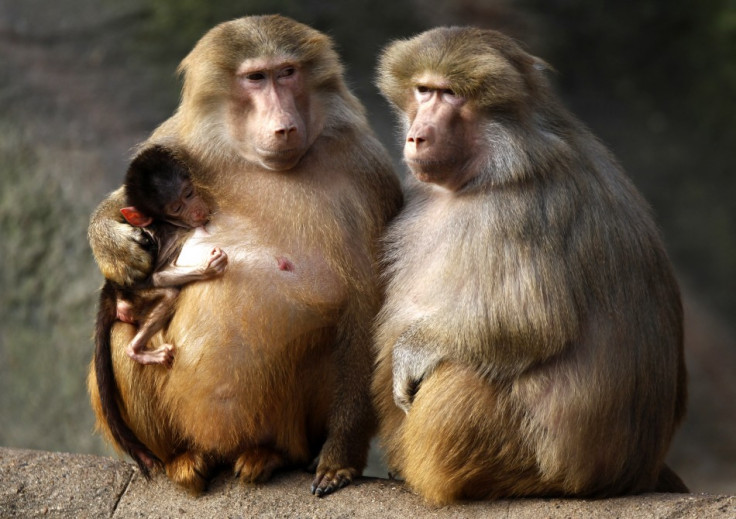Follow the leaders? Baboons use democracy to decide action of entire group

Wild baboons collectively make a decision on where to go, research has shown, dismissing theories that the most dominant figure of the group dictates the actions of the others.
Ariana Strandburg-Peshkin of Princeton University and her colleagues were investigating how animals who live in complex hierarchical societies reach decisions that involve the whole troop.
It was unclear with animals who have a hierarchy system, such as wolves and primates, whether they reached a final decision on issues that effect all via democracy or dictatorship.
It has been difficult to monitor many of the same species simultaneously but Strandburg-Peshkin and her team fitted 25 wild olive baboons, at the Mpala Research Center in Kenya, with GPS devices and tracked their movements throughout every second of every day to compare their interactions.
"Rather than preferentially following dominant individuals, baboons are more likely to follow when multiple initiators agree," the study, published in Science, states.
It adds that when the group cannot collectively reach a decision on where to go, they will compromise if the angle between the directions is small enough, or if the angle is vast, for example in opposite directions, they will go by majority.
The reports adds: "These results are consistent with models of collective motion, suggesting that democratic collective action emerging from simple rules is widespread, even in complex, socially stratified societies."
© Copyright IBTimes 2025. All rights reserved.






















